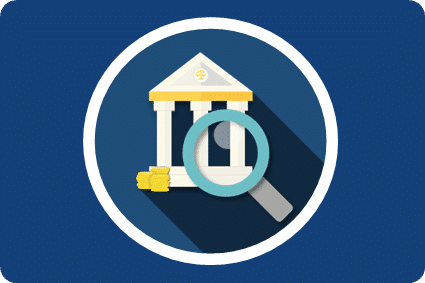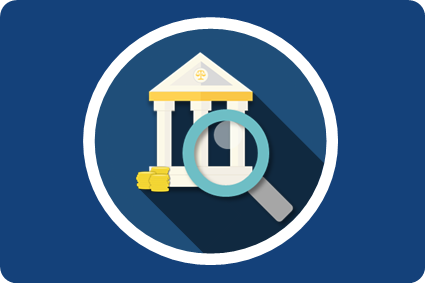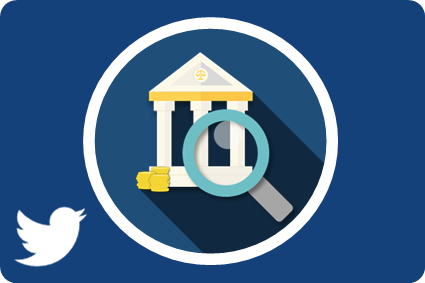What to Look For When Deciding on the Right Lessor
Updated 18th June 2021 | 6 min read Published 20th January 2015

We’ve already looked at the numerous types of lessors out there as well as which lessors should be avoided - we’ve even had a look at what a lessor wants from a lessee. So now it’s time to look into what a lessee should keep in mind when deciding on a arranging a new lease with a lessor.
There are several factors that affect what lessor will be most practical and beneficial for a lessee, depending on industry, company requirements and past experiences or agreements. Here is a general overview of the types of questions you should be asking when screening which lessor will be right for your procurement needs:
Available Financing Options
Lessors are selling a service so you naturally need to make sure that it’s the right service for your operational and financial needs. You wouldn’t hire builders that only specialise in fitting kitchens to install your new bathroom, so why would you try and agree a lease schedule for a hire purchase with a lessor that works exclusively with finance leases?
What is the rental frequency? Will you pay in advance or arrears? Is there the option for an operating lease or do they deal strictly in finance leases? Some leases have a sales agency option at the end, some do not – the trick is to make sure the features you want for your asset financing are available before you begin negotiation.
The Type of Assest They Lease
There are several types of lessors; some are specialised in a certain industry or equipment type, whereas others are more generalised. There are pros and cons with each, (as discussed here) so it’s worth evaluating your options. If you are looking to lease a fleet of forklift trucks for example, you should consider what an independent MHE lessor can offer you that your bank may not.
These specialists will have several processes in place specifically for the equipment type they lease and will be able to offer options you may not have considered, such as asset refresh or disposal. Banks and other bank owned lessors may be able to accommodate these assets as well, but even discussing the options with an independent lessor could provide an insight into which features you should negotiate with whichever lessor you chose.
Vice versa, these specialist lessors, particularly vendor lessors, can be limited with what you can lease through them and could potentially end up with multiple agreements with several different companies, which you may prefer to avoid – just because they specialise in one type of asset doesn’t mean they’re the best choice for you.
Additional Services
Alongside the financing options and lease structure, most lessors also include additional services in their leases. This can include maintenance checks and breakdown response, insurance of the asset as well as disposal and remarketing options.
Sometimes these are included as standard or as part of a “bundle”, so be careful that you don’t end up with (and paying for) services you do not need. If you’re leasing IT equipment, do they offer services for proper disposal? An independent IT specialised may be more knowledgeable of the WEEE directive, but if you already have a service that ensures your IT equipment is ready for disposal, then you don’t want a lessor that charges for it.
*Make sure you get a separate cost for these services as although they may be great, you need to know exactly where the money in the bundle is going so you have a reference to compare whether including them is actually cost effective.*
The Needs of the Organisation and End-User
This is fairly self-explanatory and links in with these other factors of picking the right lessor. Make sure when deciding on a lessor that you have your end goal in mind. What is the equipment needed for? The best rate may not be the best overall option if the terms and conditions if the lease contract are unrealistic to the asset’s requirements within the company. You are looking for a lessor that will fit in with your current processes for leasing, not one that will force you to alter your own priorities.
An Open Book Approach
It is not always obvious how difficult working with a lessor may become – sometimes the best of partnerships can turn horrifically sour by the end of it all. A large part of this is based on experience, but there are some red flags that should make you wary.
How open is the lessor about talking through terms of the lease schedule? Is it easy to get answers to questions or are you led around the point? Are costs visible or do you have to hunt through the master lease to see the real breakdown of fees? Charges are understandable – lessors also need to make money, but it should ring alarm bells if the lessor is unwilling to compromise or explain how and why they are included.
Long Term Relationship
Is the lessor looking to expand their relationship with your company? Does this seem like the first of many or just a onetime thing? Although there shouldn’t be an issue with having a lessor finance one asset, be wary of how this may affect your relationship with them.
A lessor that is keen to spark future business with you may be more forgiving and flexible to compromising, whereas one that only has one source of income from your business may be less willing to let things slide.
It’s like dating – you’re more tempted to get a cheeky free drink and dessert from someone you see no future with than someone you are trying to impress!
Innervision has built and developed strong relationships with many lessors as we have worked with a large variety on behalf of our clients. These relationships makes negotiating a much simpler and more preferable process that we can share with our customers to arrange optimal leases.
Leverage Off Existing Relationships
If you work well with your bank and are on first name basis with many of your contacts there, use that! Similarly, if you’ve got a good history with a lessor you’ve worked with in the past and maybe still do, it’s much easier to negotiate with them than someone brand new.
Likewise, if you’ve got bad blood from a previous lease or financial agreement, it’s probably best to avoid repeating those mistakes and looking elsewhere for your asset finance.
*Although it’s great to go with who you know, sticking to familiarity can mean sacrificing better options. Innervision has helped many of our clients save money on their leases by simply changing to a lessor with a more competitive lease agreement*
At the end of the day, most lessors are agreeable and a satisfactory leasing agreement can be negotiated, but to ensure you get the best from your leases, with a competitive lease rate and realistic, optimal terms, picking the right lessor is important.
The key to knowing the best option is experience. Innervision has worked on behalf of our clients with numerous lessors from around the world with different specialities and sizes. Our leasing experts have a valuable knowledge of lease management and the leasing industry which we are able to use to help harness the value of our clients lease portfolios.
For more information on Innervision and the services our clients have come to rely upon when agreeing new leases and negotiating lease schedules, contact us via +44 (0) 20 7283 9422
or use the link below:
Share this Blog?









